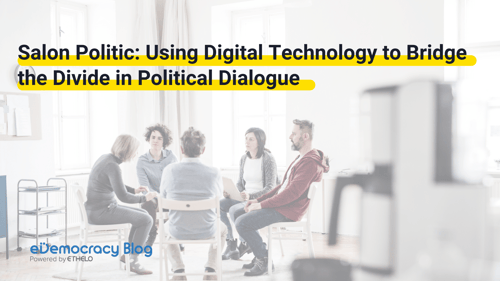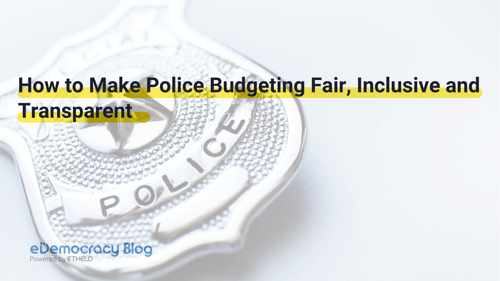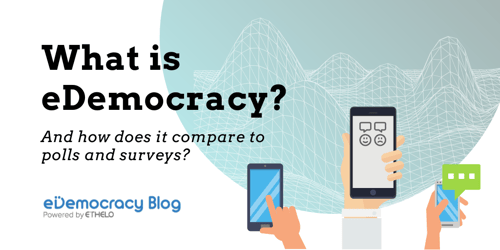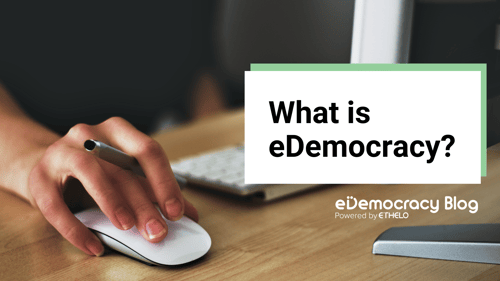
The idea of a "fairness dilemma" permeates nearly every type of group decision, whether in government, business, or even among a family. In an ideal world, everyone involved in the decision-making process would emerge from the deliberation with a similar level of satisfaction — the textbook definition of fairness.
However, many things get in the way of that desired outcome, and it can be tempting to throw fairness out the window in favor of efficiency or shaping a decision around a few influential stakeholders.
No matter how tempting it might be to do that, preserving fairness is essential for the overall acceptance of a decision, particularly those that involve many stakeholders and will be broad in scope.
This post will examine some of the research around fairness in group decision making and provide guidance on how an organization can achieve it without completely compromising expediency in the process.
What is Fair?

We’re defining fairness here as an outcome where all parties involved feel roughly the same sense of satisfaction about it. It’s one of the earliest lessons we learn as children — with good reason.
The ability to make people feel valued is one of the great qualities that humans possess. It’s part of our core set of ethics about what’s right and what’s wrong. We strive to avoid “inequality aversion,” even if it means sacrificing a little of our own satisfaction for the sake of someone else’s.
In short, fairness begets ethical behaviour, which leads to even more fairness. One place that sees the benefits of this is in the workplace, where studies show that perceptions of fairness are associated with positive emotions and attitudes, such as higher organisational commitment, and with positive behaviours such as strong organisational citizenship (e.g. helping others)."
Arguably, this idea could also be applied to one’s own community. Perceived fairness leads to a higher commitment to strong citizenship.
Fairness is at the heart of democratic deliberation and decision making. In a genuinely democratic process, everyone’s vote carries equal weight. But that is often easier said than done since humans are complex and our emotions do not always translate to rational and fair-minded thoughts.
Obstacles to Fairness
As much as we try to be fair, it’s not always possible. Even the most fair-minded among us are still subject to bias, both conscious and unconscious.
Some of these biases can be overcome through deliberation and dialogue, which allows others to point out faults in logic and arguments. However, this is a slippery slope. Civil conversation can easily descend into unproductive arguments if emotions enter the picture and are left unchecked.
Another barrier to fair decision making is the role that incentives and self-interest play in the process. Even the most altruistic people face the temptation to put self-interest above the common good. When a group of people does this, it can be nearly impossible to reach a collective decision because everyone is only concerned for themselves.
At an even more basic level, even getting a group of people to agree on the definition of fair. These disagreements plague courtroom juries and other bodies tasked with making tough decisions that revolve around right and wrong.
Getting to Fair
Given everything working against fairness, how can you possibly hope to achieve it in a group decision-making setting? Here's how: by using technology to overcome obstacles and reduce the barriers that exist when humans are left to their own devices.
Ethelo’s algorithm automatically calculates the outcome that has the most equitable distribution of support and the highest level of buy-in within the problem’s given constraints and conditions. By removing the emotion from the process, the platform is able to arrive at a conclusion that is truly fair.
It’s not that the computer understands fairness better than the human brain. Rather, it can take all available data and render a decision without bias or any of the other factors that get in the way when humans are trying to make fair decisions.
Ethelo’s platform allows for conversations to take place surrounding each element of a decision. It leverages the technology behind social media, surveys, and polls to allow for civil and informed discourse surrounding the issue at hand.
The result is what democracy looks like in the 21st century. Everyone’s voice is counted equally and the power of collective decision making leads to the best outcomes. This is true across the public and private sectors and with just about any stakeholder group you can imagine.
Want to learn more about how Ethelo creates fairness in group decisions? Check out this page, or join us for our upcoming webinar by filling out the form below.




